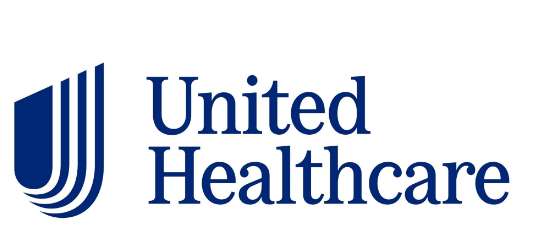Why Buffett, Tepper, And Burry Are All Doubling Down On This Stock?
The market is avoiding it, but big names like Buffett are snapping up shares, "betting big" on UnitedHealth Group. According to Berkshire Hathaways latest 13F filing, the company established a new po

The market is avoiding it, but big names like Buffett are snapping up shares, "betting big" on UnitedHealth Group.
According to Berkshire Hathaway's latest 13F filing, the company established a new position of 5.04 million shares in UnitedHealth Group (UNH) in the second quarter, with a market value of approximately $1.57 billion, marking its return to the health insurance sector after 14 years.
In addition, David Tepper's Appaloosa Management also aggressively increased its holdings by 2.3 million shares of UnitedHealth in Q2, with a market value of $760 million, making it the fund's second-largest holding after Alibaba.
Based on currently available information, hedge fund giant Renaissance Technologies also added 1.35 million shares of UnitedHealth in Q2, while Dodge & Cox significantly increased its position by 4.73 million shares. Legendary investor Michael Burry and Saudi Arabia's Public Investment Fund (PIF) also purchased call options on the company.
However, before the news of Buffett and others increasing their stakes came to light, the largest health insurer in the U.S. was experiencing its worst year since the 2008 financial crisis: the company not only suspended its annual earnings guidance and replaced its CEO but also faced a criminal investigation by the U.S. Department of Justice.
So far this year, the company's stock has plummeted nearly 45%, with its market value evaporating significantly, making it one of the worst-performing components of the S&P 500 this quarter.
At a time when many investors are steering clear, the contrarian moves by Buffett and other investment heavyweights have undoubtedly cast a crucial vote of confidence in this troubled company.
Troubles Mount! A Health Insurance Giant Mired in Crisis
As a leader in the U.S. healthcare industry, UnitedHealth has faced unprecedented challenges this year, with market concerns spreading and its stock price plummeting.
Reports indicate that in May, the U.S. Department of Justice launched an investigation into UnitedHealth's billing practices under the Medicare Advantage program, suspecting it of inflating diagnoses to obtain additional government payments.
Although the company stated in July that it was fully cooperating with the DOJ and expressed "confidence" in its business practices, this potential criminal investigation remains an issue hanging over the company.
In the same month, the company suspended its annual earnings outlook, citing "sudden changes in the operating environment due to surging medical demand." Meanwhile, CEO Andrew Witty resigned abruptly for "personal reasons," with former CEO Stephen Hemsley stepping back in.
Beyond regulatory pressure and executive turnover, rising medical costs and federal policies aimed at cutting healthcare spending have also cast uncertainty over the company's future.
Since last year, UnitedHealth has also faced ongoing reputational damage from cyberattacks. Late last year, then-CEO Brian Thompson was shot and killed, sparking nationwide discussions about the healthcare system and further tarnishing UnitedHealth's public image.
Why Are Big Names Buying? What's So Good About This Company?
Despite multiple challenges, UnitedHealth's fundamentals remain solid.
Earnings reports show that in 2024, the company generated $400.3 billion in revenue, with net profits exceeding $14.4 billion, demonstrating strong profitability.
Some investors argue that UnitedHealth has long been a "safe and steady" dividend growth stock, consistently increasing payouts over the past 15 years.
For example, if an investor spent $10,000 to buy the stock at the end of 2003, 20 years later, the portfolio value would have grown to $181,000. Even accounting for the recent plunge, the value would still be around $100,000.
Secondly, as the stock price has fallen, UnitedHealth's shares have retreated to 2020 levels, with a P/E ratio of just 12, making its valuation notably attractive.
Supporters also argue that as one of the largest health insurers in the U.S., UnitedHealth still holds a critical position in the industry, and its long-term prospects remain promising. The current difficulties are likely short-term in nature.
Disclaimer: The views in this article are from the original Creator and do not represent the views or position of Hawk Insight. The content of the article is for reference, communication and learning only, and does not constitute investment advice. If it involves copyright issues, please contact us for deletion.